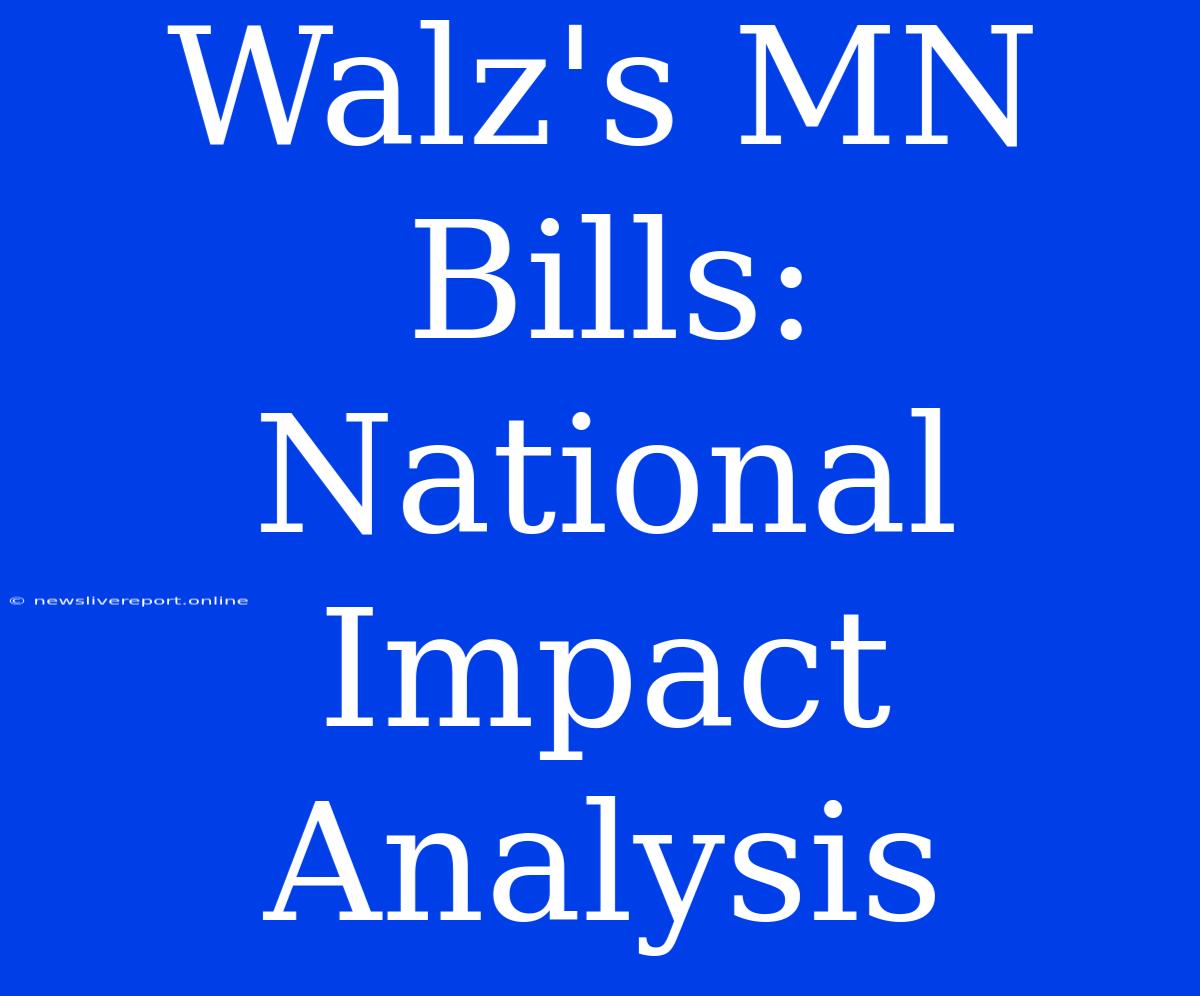Walz's MN Bills: A National Impact Analysis
Governor Walz's recent legislative push in Minnesota has sparked national attention, with his proposed bills potentially serving as a blueprint for other states.
What are the key bills?
Governor Walz has prioritized bills focusing on education, healthcare, and economic development:
- Education: A bill providing universal free preschool, aimed at giving all children access to early education and promoting long-term academic success.
- Healthcare: A bill expanding Medicaid eligibility and providing affordable healthcare options for low-income individuals and families.
- Economic Development: A bill investing in renewable energy and green infrastructure, creating new jobs and promoting a sustainable future.
National Impact:
These bills have drawn interest nationwide, particularly among progressive policymakers:
- Free Preschool: The universal free preschool bill has gained attention as a potential model for other states seeking to close the achievement gap and improve educational equity.
- Healthcare Expansion: The Medicaid expansion bill resonates with states grappling with rising healthcare costs and uninsured populations.
- Green Infrastructure: The investment in renewable energy and green infrastructure aligns with national efforts to address climate change and create green jobs.
Challenges and Concerns:
While these bills have garnered praise, some challenges remain:
- Funding Concerns: Implementing these programs requires significant financial resources, raising questions about potential tax increases or budget cuts in other areas.
- Political Polarization: The bills have faced partisan opposition, with Republicans raising concerns about government overreach and the cost of these initiatives.
- Long-Term Sustainability: The effectiveness of these bills hinges on their long-term sustainability and the ability to adapt to changing economic and social conditions.
Conclusion:
Governor Walz's legislative package in Minnesota has sparked a national conversation about the role of government in addressing key societal challenges. These bills offer potential models for other states, while also raising important questions about affordability, political feasibility, and long-term sustainability. The impact of these bills on national policy remains to be seen, but their focus on education, healthcare, and economic development will likely continue to shape debates across the country.

